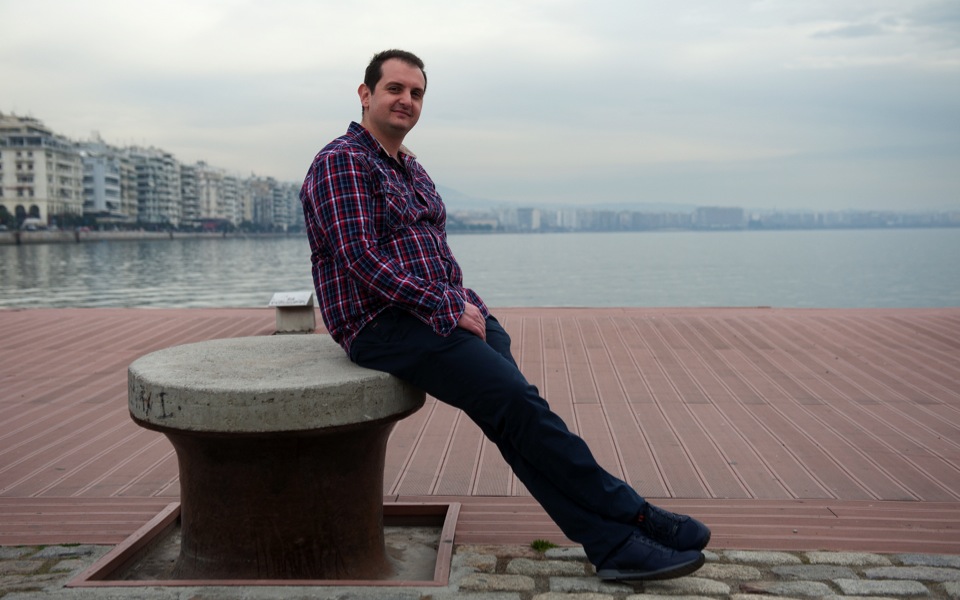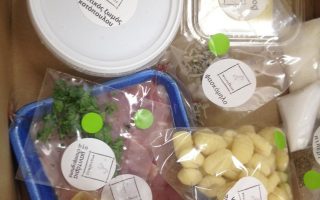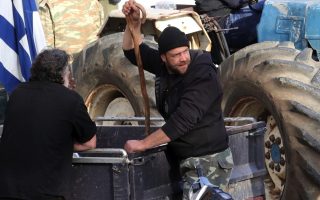Stelios Tziotzios: The reticent king of telemarketing

“If you were to ask me a few years ago whether I thought I could bounce back, I’d say no way. Not in a billion years. And I thank God every day.”
I’m on the phone with 35-year-old Thessaloniki-based businessman Stelios Tziotzios. If his name doesn’t ring a bell, then that of his company, Diamant, may. And if that doesn’t, then the merchandise it markets certainly will: from insect repellent and mosquito screens to the Pretty Bra, smart socks and Greek-speaking blood pressure monitors, to sundry gadgets you’re embarrassed to admit you’re dying to own.
Tziotzios isn’t fond of speaking to the media. That isn’t because he doesn’t like journalists, but rather, as we understand a little later after finally convincing him to talk to us, that he sees exposure as a sign of arrogance.
“As a family we are all low-key. We don’t like to provoke discussion. We just want to do our job,” he says.
Even though he may hate to admit it, Tziotzios is the star of a very particular success story. Ten years ago, his family went bankrupt after its clothing manufacturing firm in Thessaloniki was unable to compete with cheap imports and was forced to shut down.
“We were ruined,” Tziotzos says without beating around the bush. He tried different things in the years that followed but nothing seemed to hold any promise until 2007 when his brother had an interesting idea. “The idea was to bring to people items they could not find on a shop shelf that would solve all sorts of day-to-day problems, at low prices. When someone has a salary of 500 euros a month, they simply can’t afford everything you have to offer,” he says.
The key to the success of the scheme was telemarketing. “This enables you to be inside the other person’s home; they don’t need to come to your shop. The 4 million households we have access to is like having 4 million stores.”
Getting started was tough, like all new endeavors. “We worked morning to night, without holidays or breaks. At first we did everything: answering the phones, delivering merchandise etc.”
One of the biggest obstacles was consumers’ suspicion of telemarketing products.
“Telemarketing has been misunderstood mainly because there is no oversight at local television stations – all sorts of things are sold without any forms of certification. On bigger broadcasters that have an entire legal department, there is a lot more control,” says Tziotzios.
The family soon left the small TV stations of Thessaloniki behind and invested in those with greater reach.
The first big success came in 2010 with a water purifier, and that was the start of a stellar trajectory. The advertising approach has not changed much, featuring “real” people rather than actors or models. Among the few exceptions are the recruitment of celebrity chefs Vefa Alexiadou and Ettore Botrini, respectively advertising the vine leaf stuffer and roller and a series of frying pans.
“Regular folk are our audience. Take a beggar in Bournazi and another in Kifissia; the first will collect 500 euros and the other 50,” says Tziotzios, referring to two neighborhoods of Athens, the former working-class and the latter upmarket. “It’s the masses that will shop, though today our client list includes people who have never bought anything via telemarketing.”
Indeed, Diamant SA now runs three outlets: on Valaoritou Street in central Athens, Valaoritou Street in Thessaloniki and Iroon Polytechniou Avenue in Piraeus. They are all jam-packed every day with consumers who want to have a closer look at the products they have seen advertised on TV.
The secret to Tziotzios’s success appears to lie in the presentation of the products. “For example, there was a bra similar to the Pretty Bra in the stores before our product was launched, but there was no way a woman would wear it. We pitched it as being ideal for specific users, such as for young women at the gym, for pregnant women or older women who need more support.”
The products are either chosen from exhibitions abroad, such as in the USA or China, or are original inspirations. “The dolma roller, for example, is our own invention,” says Tziotzios. “It existed in part as a product but was not complete. That’s why it bothers me when I see branded products in stores and then to see others selling knockoffs that are inferior in quality. We pay all our taxes and have all sorts of expenses. How can we compete with vendors who don’t even issue receipts?”
Tziotzios refused to impart any information about sales or revenues. “Those are trade secrets,” he says, laughing. “We got where we are with a lot of hard work. And we keep trying to get better and to provide a livelihood for as many people as possible.”
* This article first appeared in Kathimerini’s Sunday supplement magazine, K.





